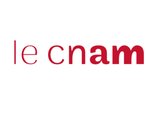Concepts et méthodes en épidémiologie
- Duration: 6 weeks
- Effort: 18 hours
- Pace: ~3 hours/week
- Languages: French
What you will learn
At the end of this course, you will be able to:
interpret scientific articles dealing with these subjects, and you will be prepared to pursue specialised teaching in epidemiology and public health.
Description
Monitoring diseases and carrying out population-based surveys to identify their causes (behaviours, environmental exposure, and genetic factors): such is the role of epidemiology, the principles and methods of which you will learn during this course.
The course begins with a presentation of the key principles of descriptive epidemiology (monitoring of diseases, investigation of epidemics) and analytical epidemiology (identification of disease risk factors). Principal risk indicators, the formulation of a scientific hypothesis, the study schemes used in population-based surveys, taking sampling fluctuations into account, the statistical analysis of results and the interpretation of bias: all of these will be explained and illustrated by examples and case studies drawn from the real world.
The course will also address the main principles of causality and the levels of proof required today to be able to say that a given “exposure” is responsible for a disease.
Format
This archived course remains open to registrations although it is not facilitated by the course teachers
Prerequisites
There are no prerequisites, although knowledge of biostatistics would be useful for hypothesis tests. What about medical knowledge? Of course, the more you know, the better, but it is far from necessary. In Anglo-Saxon countries, the majority of public health specialists are not doctors.
Note: two of the case studies are drawn from scientific articles in English. An understanding of written English will therefore be important for these two exercises.
Assessment and certification
This course does not issue badges, attestations or certificates.
Course plan
- Week 1: Introduction
- Context and definitions
- History of epidemiology
- Descriptive epidemiology
- Analytical epidemiology
- Level of proof and causality
- Week 2: Indicators
- Prevalence and incidence
- Morbidity/mortality rate
- Standardisation of rates
- Relative risk – cohort
- Relative risk – case-control studies
- Distribution of an article on melanoma monitoring in France
- Week 3: Monitoring/case-control studies
- Monitoring of disease
- Hypothesis test – value P – confidence interval
- Case-control studies: design
- Case-control studies: analysis
- Correction of the article on melanoma monitoring in France
- Distribution of an article about case-control studies on acute hepatitis C in Egypt
- Week 4: Cohort studies
- Cohort studies – design
- Cohort studies – analysis
- Confounding factors – diagnostic
- Confounding factors – analysis
- Correction of the article on case-control studies of acute hepatitis C in Egypt
- Distribution of an article on the cohort studying the relation between oleaginous fruits and heart attacks
- Week 5: Randomised trials/screening
- Randomised trials
- Calculation of the sample size
- Sensitivity/specificity/predictive values of a test
- Screening for diseases
- Correction of the article on the cohort studying the relation between oleaginous fruits and heart attacks
- Week 6: Miscellaneous
- Selection bias
- Surveys and polls
- Matching
- Attributable fractions
- Exam
Course team
Arnaud Fontanet
Categories
Recommended reading
Not essential for this course, but useful for those who would like to go deeper:
“Epidemiology in medicine” (C.H. Hennekens, J.E. Buring). Lippincott Williams & Wilkins Editions
License
License for the course content

Attribution-NonCommercial-NoDerivatives
You are free to:
- Share — copy and redistribute the material in any medium or format
Under the following terms:
- Attribution — You must give appropriate credit, provide a link to the license, and indicate if changes were made. You may do so in any reasonable manner, but not in any way that suggests the licensor endorses you or your use.
- NonCommercial — You may not use the material for commercial purposes.
- NoDerivatives — If you remix, transform, or build upon the material, you may not distribute the modified material.
License for the content created by course participants

All rights reserved
"All rights reserved" is a copyright formality indicating that the copyright holder reserves, or holds for its own use, all the rights provided by copyright law.



